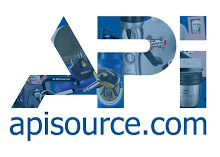The use of persuasive language strategies is the most neglected area of any sales training. Following, you'll find some great language tips!
Here are three key language tips you'll be able to adopt very quickly.
Minimizers:
These are little words that erode the value of our conversation and therefore our product or service offering. Only and just are minimizers."I only wanted to talk about..."
Most of us were taught to do this (incorrectly!) on sales calls when trying to reach decision-makers. Do you really want to begin a relationship by positioning your ideas as minimal in importance?
Often a gatekeeper to the decision-maker will unconsciously pick up your words only or just and dump your attempt to present into a category that reads "not really important." Delete these minimiziers from your dialogues when selling on the phone and face-to-face. Instead, be very distinct in your opening statements that your solutions have high value for the buyer. Use comments like, "This is critical information. Our clients use us to eliminate three key problems which you're probably encountering now."
Instead of reducing the value of your offering, you've offered some strong language with a bit of intrigue.
Euphemisms:
These are undefined words that muddle the true meaning of a phrase. They are used to discuss uncomfortable ideas. Check out this quote from philosopher G.K. Chesterton: "The word 'good' has many meanings. For example, if a man were to shoot his grandmother at a range of five hundred yards, I should call him a good shot, but not necessarily a good man."
If someone says to you "We're OK with current situation." a bad rep might bail and say "OK can I call you in six months?" A great rep will ask for clarity. "Oh, we? Who else is involved in the decision making?", "What exactly does OK mean?", and if they are feeling really brave or have a level of rapport they may try something like "Wow, OK to me sounds like mediocre. Are your current solutions really that good or simply adequate?"
By the way, euphemisms infect our sales lives at every level. Some companies choose to keep the term sales out by opting for terms like Account Executive. While there is some solid image management being done here, we are sales professionals and we go to the bank when we sell.
Why?
Why is a horrible word and should be abandoned by sales professionals. It serves as an indictment on the intelligence of the person hearing it.
Picture this: You're 16 years old and have just announced to your parents that you're going to hitchhike to Mexico and try cliff diving with some friends. Dad looks at you and say "Why in the world would you do that? Why would anyone throw a perfectly good body 100 feet into an ocean? Did I raise an idiot?"
Do you recall have a parent or other adult talk to you like that? Do you think it's a smart move to throw the prospect's unconscious mind back to that time when he or she was verbally beaten up for a choice they made?
"Why wouldn't you buy after we've spoken for 90 minutes? I gave you great insights and solutions and you're still saying NO? Why Why not?" Listen to what those words do. Is it wise to imply that your solution is so good, so obvious, that only a fool would pass it up? Good news! You can replace why with a word that gives you loads of information and will help you keep the call from ending prematurely.
Your new word is how. Where why creates a defensive response, how respectfully asks for the buyer's decision making process. Let's put out new word to work on a buyer.
VP of Marketing: Well, I just don't think we are prepared to make a decision today.
Jennifer: Oh, how did you determine that we're not right, at this time, for you?
Using how discards the "in your face" indictment of the prospects intelligence. Using how turns the question into a request for the process that a buyer goes through to reach their decision. Notice also that Jennifer has sneaked in "at this time" to imply that momentarily she is OK with the resistance. But how offers the real power in this dialogue.
Pay very close attention the psychology of how in this world. You want to draw out of the buyer a process or path he or she travels to get to a decision. How will help you unpack the buyer's brain and discover how that individual makes up his or her mind.





No comments:
Post a Comment